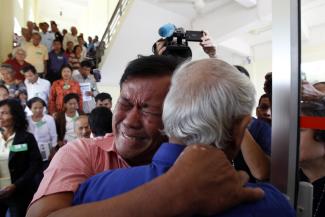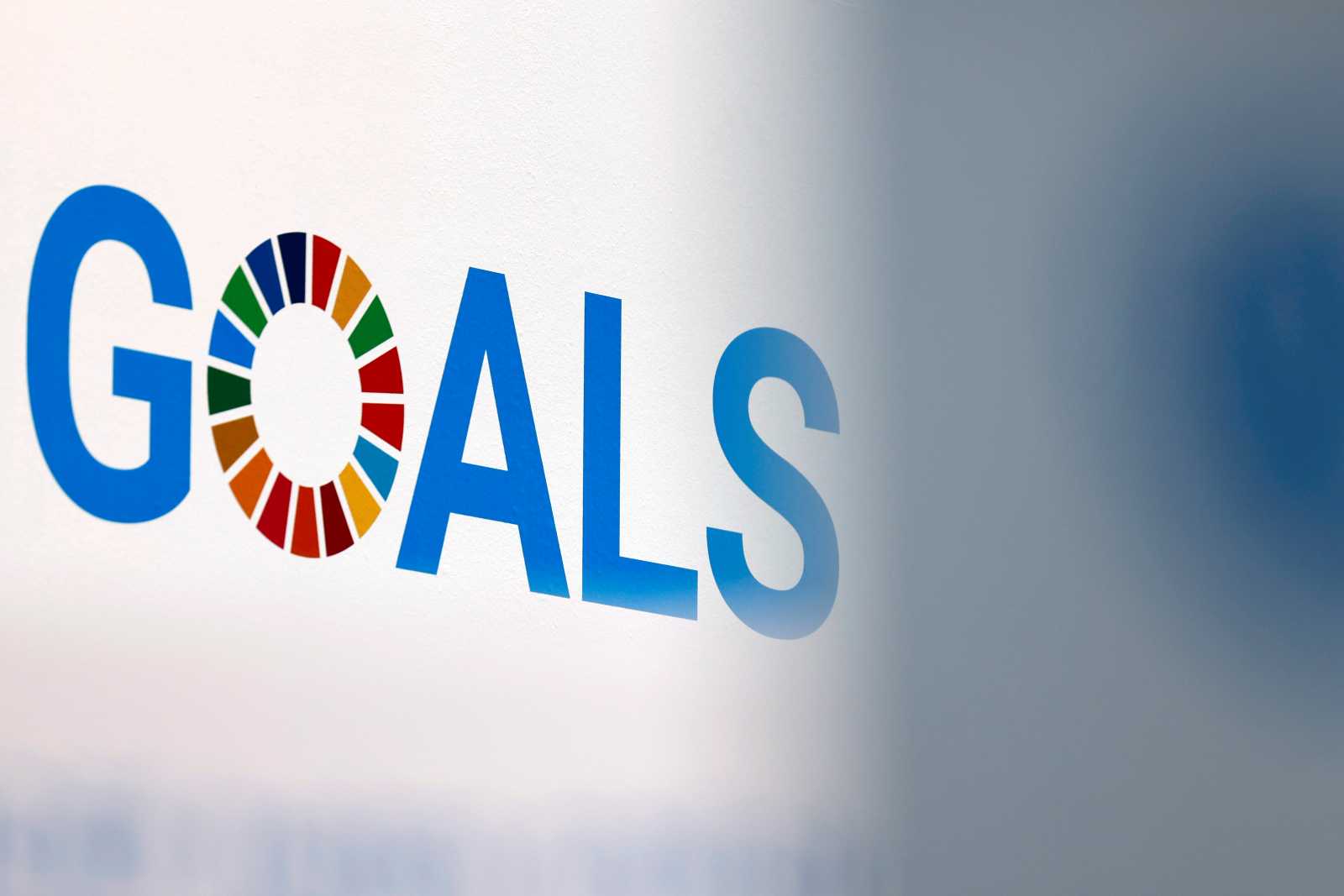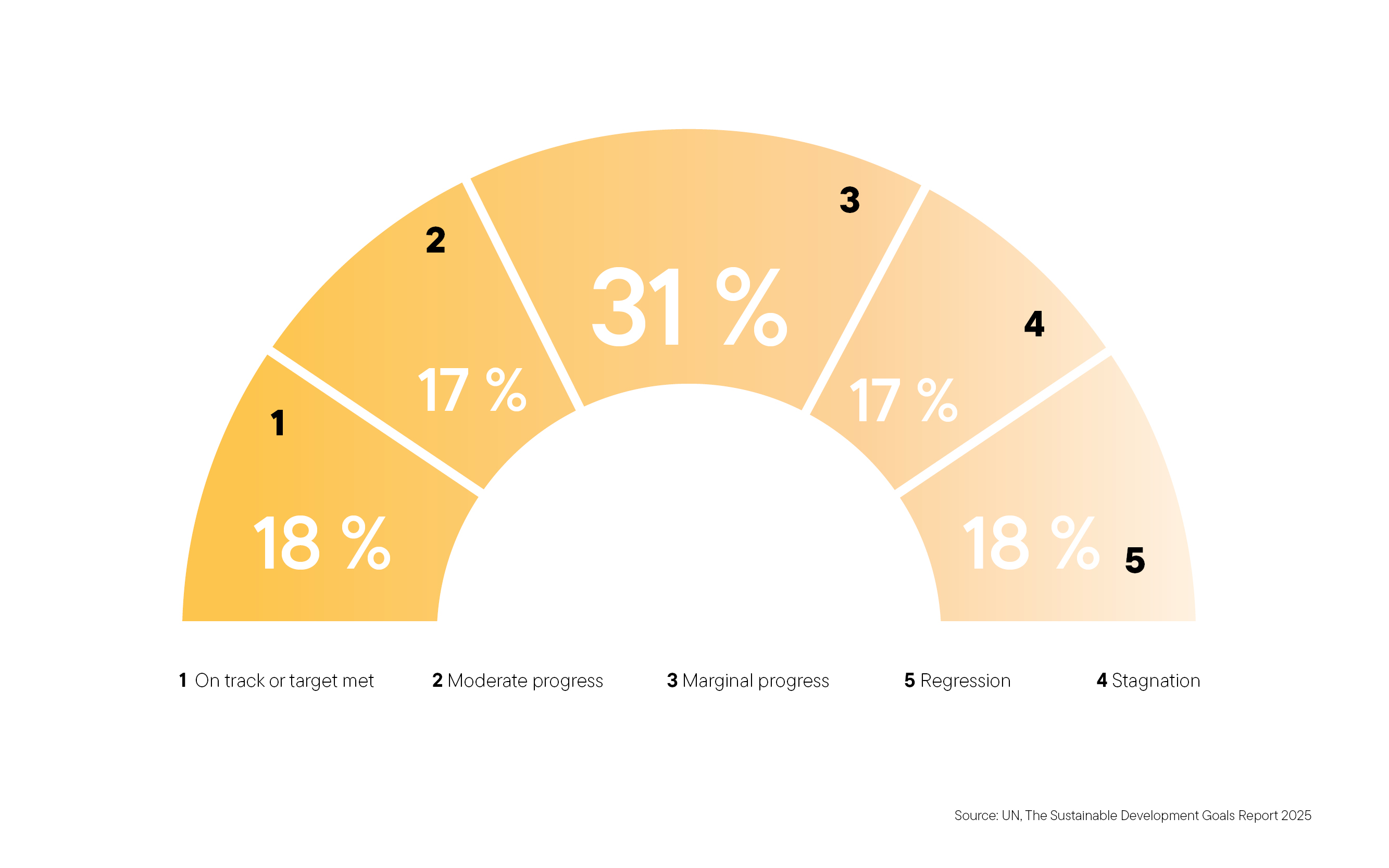Crimes against humanity
At least and at last
By Katja Dombrowski

Under the Maoists that ruled and devastated the country from April 1975 to December 1979, an estimated 2 million people died from overwork and starvation, disease and torture. Others were executed in incredibly brutal ways.
The Extraordinary Chambers in the Courts of Cambodia, ECCC, commonly known as the Khmer Rouge Tribunal, delivered the most important sentence in its history on August 7, 2014. An entire people had been waiting for that day. Relatives of the slain and other survivors of the nightmare that keeps haunting Cambodia collapsed in tears as judge Nil Nonn spoke the words they had been hoping for. The court found the defendants to be guilty of, among other things, murder, political persecution and extermination. Life imprisonment is the severest punishment that the ECCC can impose.
The greatest satisfaction lies not in the fact that two sick old men will spend the remaining days of their life behind bars, but in the fact that the verdict materialized at all. Obstacles included tricks and treason, death and denial as well as lies and lethargy. It had taken the UN years to convince Cambodia’s leaders to agree to a UN-backed tribunal. Only in 2003 did Hun Sen, the country’s prime minister, bow to international pressure. He is a former Khmer Rouge, but became the post-Khmer-Rouge strongman nonetheless. He insisted, however, that the tribunal take place in Cambodia, be part of the country’s judiciary and be run by a majority of Cambodian judges.
The ECCC was inaugurated in 2006 with the mission of trying those who were “most responsible” for the Khmer Rouge’s crimes. Proceedings were slow, however, due to numerous conflicts, political interference and disagreements between Cambodian and international staff, resignations of UN staff and financial problems. Up to this month’s verdict, only one Khmer Rouge leader, Kaing Guek Eav, alias Duch, had been sentenced.
People were waiting for the top leaders to pay their price. Many, including Pol Pot, died a long time ago. Others died while the court cases were going on. But some senior cadres have survived, including Nuon Chea and Khieu Samphan. For many years, they were able to live comfortably in a country that was traumatised by their, and their comrades’, megalomaniac brutality.
People feared that, apart from Duch, no other senior leader would live long enough to be sentenced. Now that it has happened, the overwhelming feeling of many is “at last and at least”. At least two of the top cadres have been held responsible.
In order to speed up the proceedings, the complex trial against Nuon Chea and Khieu Samphan was split up into several cases. The first focused primarily on alleged crimes against humanity relating to the forced movement of people during the rule of the Khmer Rouge and the alleged execution of soldiers who had served the previous regime. The second case is still under way, dealing with alleged genocide of the Cham minority and Vietnamese and other crimes.
These crimes must be dealt with, too. For the accused, though, who neither admitted their responsibility nor uttered any words of remorse for the crimes, the outcome will make no difference. Life in prison is their destiny.
Two more cases against additional alleged perpetrators are being prepared, too. But Hun Sen has declared many times that he will “not allow” them. Time, money and the world’s support for the tribunal are running short as well. It appears increasingly unlikely that a new trial will commence, let alone be finalised. But even if it does – last month's verdict will stand out as an historic one. It justifies all the years of hard work, all the money spent by the international community, all the setbacks and frustrations, all the painful feelings stirred up in the victims. This verdict is an enormous relief.
Katja Dombrowski is a freelance journalist based in Bangkok. kd@katja-dombrowski.info








